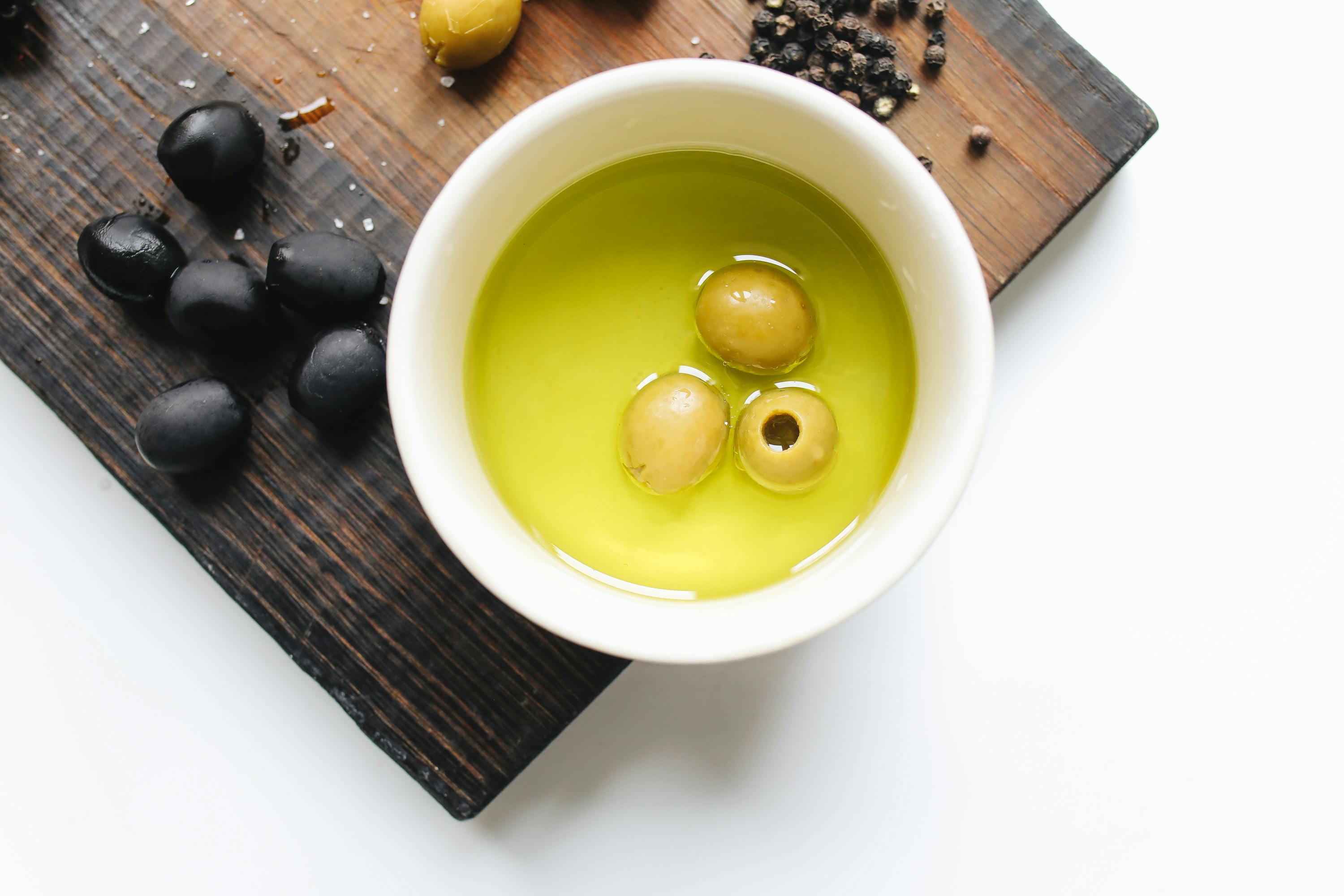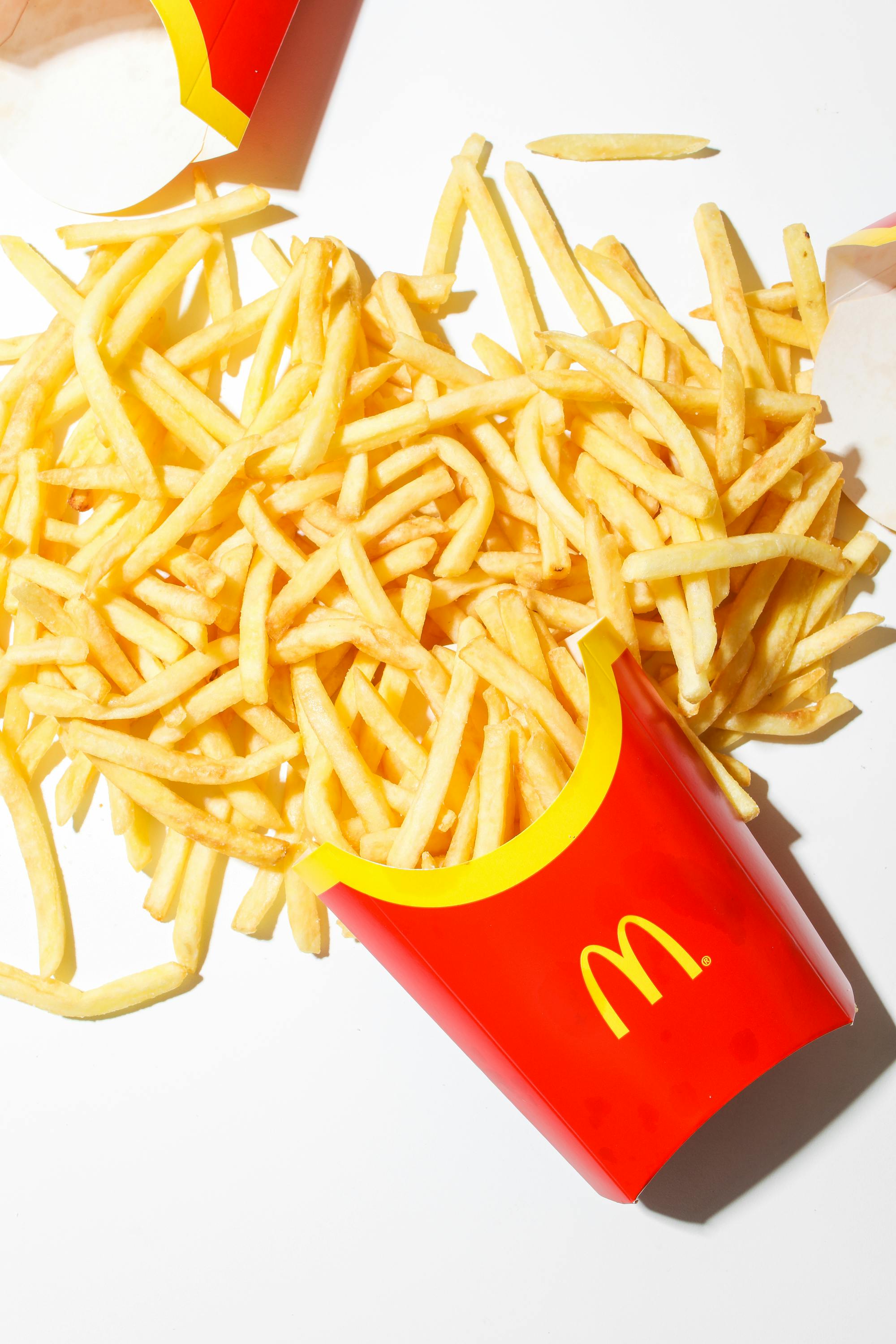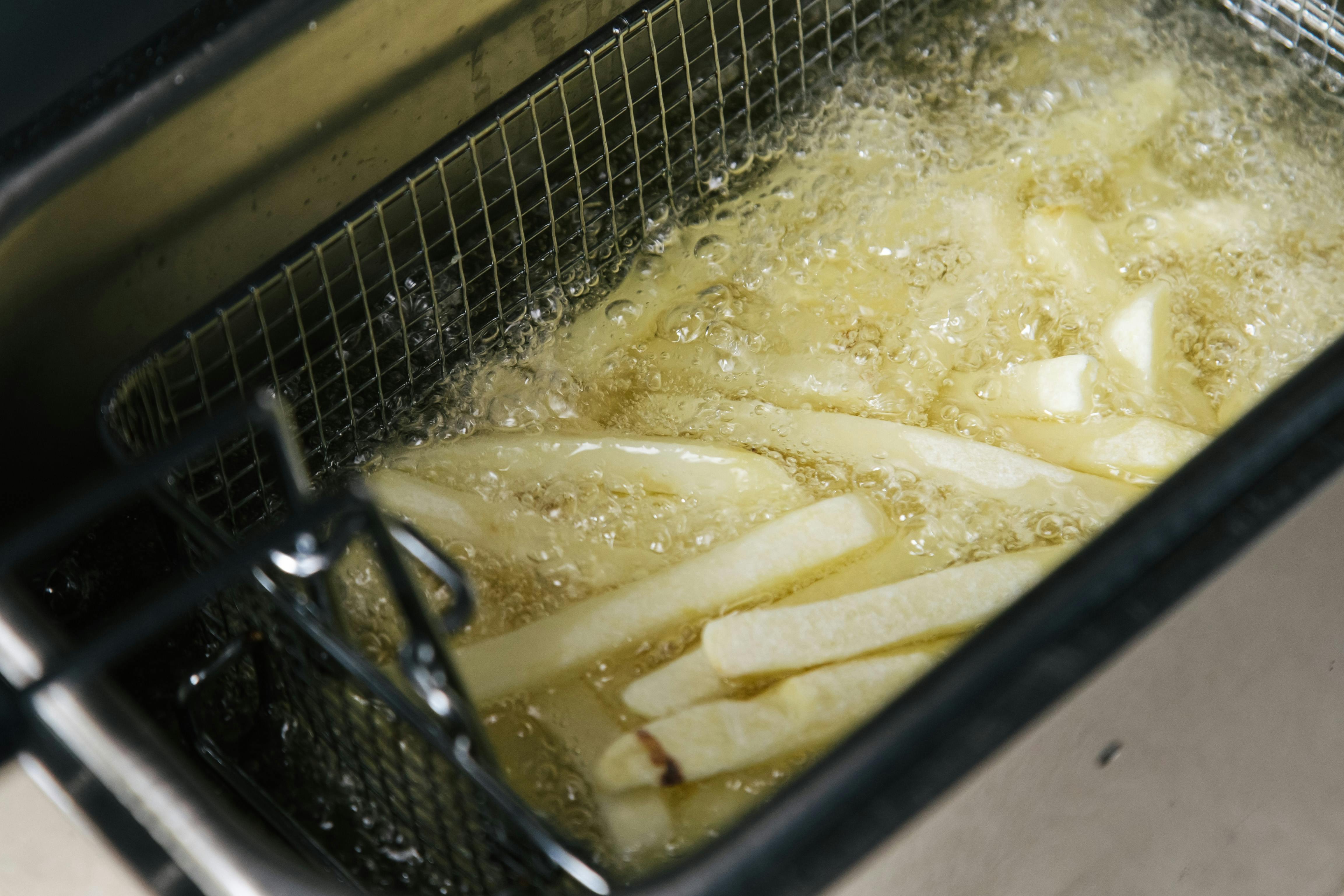Why Vegetable Oils Are Toxic
The Most Popular Cooking Oil
In this day and age, in humble homes and relaxing restaurants alike, vegetable oil is the go-to substance for frying tasty food. We all know the scents of flavorful fish, scrumptious chicken, and savory seafood. Upon seeing the entrées on our plates, our mouths salivate as profusely as the river plummets at the Angel Falls – a terrific waterfall in the tropical country of Venezuela that is taller than the Twin Towers in Manhattan. As we all know, vegetable oils enable food to be fried in the first place. Without this extract, delicious donuts and mouth-watering mozzarella sticks would tragically be unknown to the human race.
Fortunately, the statement before this one is categorically false. It is possible to fry food without vegetable oil. “Vegetable oil” is an umbrella term for multiple different oils – canola oil, sunflower oil, corn oil, soybean oil, grapeseed oil, etc. Still, none of these are necessary for cooking food. In fact, in the 1980s and before, the famous retail chain known as McDonald’s cooked their French fries in beef tallow, which is cow fat. Supposedly, these fabled fries of the dinosaur ages were superior to the fries the fast-food joint serves today (as you can infer, I’m not old enough to know, hence “supposedly”). Why did the corporation switch from using animal fat to canola-blend oil to sizzle their potatoes? The demonization of animal fats. A multi-millionaire named Phil Sokolof blamed animal fats for his cardiac arrest. Vegetable oil was later touted as an healthy alternative to beef tallow.
Are Vegetable Oils Actually Healthy?
But are vegetable oils nutritious? No, said family physician Catherine Shanahan in Dark Calories (2024). Though, before an elaboration on the quality of vegetable oil is provided, it will be useful to know the different types of fats. Fat can be divided into four categories: 1) saturated, 2) monounsaturated, 3) polyunsaturated, and 4) trans. Saturated fats are found in animal products such as Greek yogurt, cheese, butter, milk, cream, lard, duck fat, and tallow. Monounsaturated fats are found in olive oil, peanut oil, and avocado oil. The liquids that we call “vegetable oil” contain polyunsaturated fats. Trans fats are created when vegetable oils are heated.

For her argument, Dr. Shanahan hones in on polyunsaturated fatty acids (PUFAs), since that is the primary fat found in the liquid. Our bodies need some PUFAs to be able to produce an inflammatory response. The body uses such a reaction to protect the body against infections, such as cold and flu viruses, and traumas, such as bruises or cuts. That said, an excess amount of PUFAs circulating in the body is not only not beneficial for said body, but degrades the health of the body. Why? Oxidation. What is oxidation? Simply put, oxidation is the chemical process of a substance reacting with oxygen. When the PUFAs are oxidized, toxins that harm the human body are produced.
The extent to which a molecule of fat is susceptible to being oxidized depends on the amount of double bounds said molecule possesses in its hydrocarbon chain. Saturated fats molecules have no such double bonds; monounsaturated fats, one; polyunsaturated fats, many. Therefore, saturated and monounsaturated fats are much less prone to oxidation than polyunsaturated fats, making the former two types of fat much less toxic to the human body.
The Perils of Chronic Inflammation
Oxidation is the process that enables the body to generate an inflammatory reaction. Acute inflammation is healthy. It signals to immune cells to attack pathogens. Chronic inflammation, on the other hand, can damage tissue through excess wear and tear. The chronically inflamed body is prone to developing diseases such as rheumatoid arthritis, Graves’ disease, and celiac. These three illnesses are all autoimmune disorders, which, as a reminder, is a collective term given when the immune system attacks healthy cells. The function of the immune system is to fight off invaders, not cells “in its own team,” so to speak. Think of an autoimmune response as “too much of a good thing.”
A useful way to remember that oxidation is dangerous is to think of antioxidants. Antioxidants scoop up free radicals, which cause damage to cells and DNA. These same radicals are produced via oxidation. Referencing a paper published by John M. C. Gutteridge in 1993, Dr. Shanahan noted that free radicals are linked to the infamous Alzheimer’s disease, which is considered by some scientists to be an autoimmune disease; albeit, there is an ongoing debate on what type of disease it actually is (as indicated by the contradictory results provided by search engines). Alzheimer’s is a disease nonetheless, and the lack of excess oxidation could help mitigate, if not prevent, said degeneration. A well known antioxidant is vitamin E.
PUFAs Damage to Mitochondria
PUFAs also hinder the functioning of mitochondria, which is the part of the cell that provides said cell energy. Mitochondria can use saturated and monounsaturated fats as fuel, but cannot use PUFAs as a source of energy. When fed PUFAs, the energy output of the mitochondria becomes sluggish.
Energy depleted cells lower the supply of blood sugar in the body. At face value, this may seem favorable, since a plethora of people suffer from insulin resistance. The problem is, an energy deficient cell does not burn fat as it is supposed to; instead, it burns sugar. This tricks the body into thinking that it doesn’t have enough sugar. This leads to people overeating, which leads to the buildup of visceral fat. An excess of this fat overloads the liver with glycerol, dysregulating the organ’s ability to manage glucose.
Which Fats Are Healthy?
As you can see, vegetable oils are ill suited for consumption, in spite of its decades-long availability and popularity. Considering the fact that vegetable oils in excess are poisonous, along with the proposition that animal fats are unsafe as well, are there any oils not included in those two groups we can eat? If you’ve read the post up to this point thus far, you will most likely point to monounsaturated fats – macadamia oil, coconut oil, pumpkin seed oil, etc. If you read the question more carefully though, you will notice the following phrase: “the proposition [not fact] that animal fats are unsafe.” With this phrase in mind, is saturated fat really unhealthy to consume? Did McDonald’s decision to refrain from using beef tallow enhance the health of Americans? No. Not only is saturated fat not the blood-curdling boogeyman people imagine it to be, it’s healthier than PUFAs.

How come so many people hold on to the illusion that saturated fats are harmful? Their flimsy understanding of cholesterol. Studies have shown that the correlation between cholesterol intake and blood cholesterol is slim at best. These numerous studies have earned the respect of the official U.S. Dietary Guidelines, which has acknowledged that excess cholesterol is not a concern since 2015. Fat and carbohydrate intake have a greater influence on blood cholesterol levels than dietary cholesterol. Cholesterol is a nutrient, not a toxin. Dr. Shanahan compares the nutrient to duct tape, since it helps maintain cells. Even “bad cholesterol” is not ruinous by default. Low-density lipoprotein releases cholesterol into the arteries only if it is oxidized.
High blood cholesterol is not a health issue, yet the opposite is. Dr. Shanahan mentioned a clinical trial conducted by Christopher E. Ramsden, which showed that people who ate animal fats experienced heart attacks 60% less than those with a high-PUFA diet. Low blood cholesterol has also been linked to sepsis and low fertility.
Dietary Changes You Can Make
On a practical level, what changes can you implement to improve your health and lower the risk of developing complications as you age? Avoid the oils that Dr. Shanahan coins “The Hateful Eight” – corn oil, canola oil, cottonseed oil, soy oil, sunflower oil, safflower oil, grapeseed oil, and rice bran oil. The first six can be found on the ingredients list on grocery items, whereas the remaining two are used mostly in restaurants. Also, follow the guidelines the author calls “The Four Pillars of Health,” which are as follows: 1) eat fresh food, 2) eat meat, 3) eat fermented and sprouted foods, 4) eat all the animal from nose to tail. This is how our ancestors ate – naturally.
Following these guidelines may seem tedious at first, but Dr. Shanahan states that you’ll eventually get the hang of the procedure. You can make slight adjustments at first. Instead of frying or scrambling eggs using soybean oil spread, like Country Crock or I Can’t Believe It’s Not Butter, use real butter. Use beef tallow, duck fat, or refined peanut oil to make homemade fries. Dr. Shanahan rates refined monounsaturated oils as “okay, but not great.” Although refined peanut oil is less healthy than unrefined peanut oil, the latter will make your fries taste like peanuts (yuck!). Saturated fats have a lower smoke point than vegetable oils, so when cooking with the former, watch your food carefully.
Ultimately, the consumption of seed oils have noticeably diminished the health of Americans. The hazardous effects of PUFAs are still unknown to many people, laymen, fast-food corporate heads, and health professionals alike. This means that Dr. Shanahan is one of the doctors that are ahead of the curve with regards to knowing the dangers of PUFAs. You are now ahead as well.
Use this knowledge to your advantage, or don’t.
The choice is yours…
Watch the video – featuring Dr. Shanahan – below for more insights on healthy eating.

